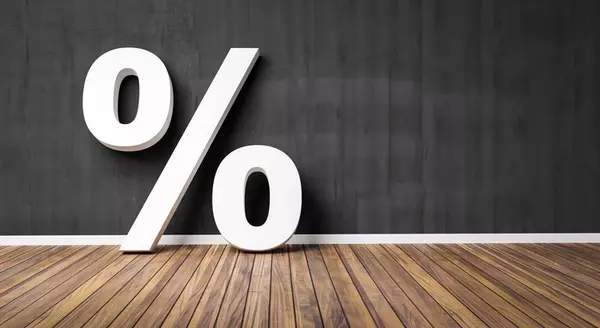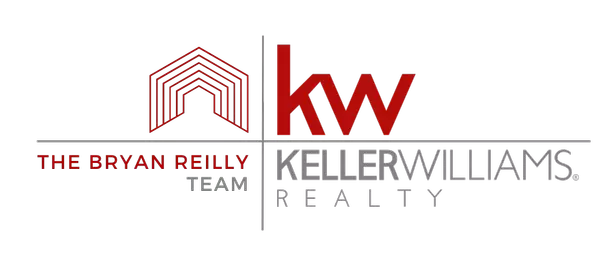
What’s Really Happening with Mortgage Rates?
Are you feeling a bit unsure about what’s really happening with mortgage rates? That might be because you’ve heard someone say they’re coming down. But then you read somewhere else that they’re up again. And that may leave you scratching your head and wondering what’s true.The simplest answer is: that what you read or hear will vary based on the time frame they’re looking at. Here’s some information that can help clear up the confusion.Mortgage Rates Are Volatile by NatureMortgage rates don’t move in a straight line. There are too many factors at play for that to happen. Instead, rates bounce around because they’re impacted by things like economic conditions, decisions from the Federal Reserve, and so much more. That means they might be up one day and down the next depending on what’s going on in the economy and the world as a whole.Take a look at the graph below. It uses data from Mortgage News Daily to show the ebbs and flows in the 30-year fixed mortgage rate since last October: If you look at the graph, you’ll see a lot of peaks and valleys – some bigger than others. And when you use data like this to explain what’s happening, the story can be different based on which two points in the graph you’re comparing.For example, if you’re only looking at the beginning of this month through now, you may think mortgage rates are on the way back up. But, if you look at the latest data point and compare it to the peak in October, rates have trended down. So, what’s the right way to look at it?The Big PictureMortgage rates are always going to bounce around. It’s just how they work. So, you shouldn’t focus too much on the small, daily changes. Instead, to really understand the overall trend, zoom out and look at the big picture.When you look at the highest point (October) compared to where rates are now, you can see they’ve come down compared to last year. And if you’re looking to buy a home, this is big news. Don’t let the little blips distract you. The experts agree, overall, that the larger downward trend could continue this year. Bottom LineConnect with a professional if you have any questions about what you’re reading or hearing about the housing market.
![Winning Plays for Buying a Home in Today’s Market [INFOGRAPHIC],KCM Crew](https://img.chime.me/image/fs/chimeblog/20240210/16/w600_original_bf783e03-566b-4a7c-9d43-3084645982c4-png.webp)
Winning Plays for Buying a Home in Today’s Market [INFOGRAPHIC]
Some HighlightsIn today's housing market, you can still come out on top if you have the right team and plan.To win when buying a home, you need to build your team, make strategic plays, consider what’s in and out of bounds, and stand out from the crowd.Connect with a local real estate agent today to make your winning move.

Home Equity Can Be a Game Changer When You Sell
Are you on the fence about selling your house? While affordability is improving this year, it’s still tight. And that may be on your mind. But understanding your home equity could be the key to making your decision easier. An article from Bankrate explains:“Home equity is the difference between your home's value and the amount you still owe on your mortgage. It represents the paid-off portion of your home.You'll start off with a certain level of equity when you make your down payment to buy the home, then continue to build equity as you pay down your mortgage. You'll also build equity over time as your home's value increases.”Think of equity as a simple math equation. It's the value of your home now minus what you owe on your mortgage. And guess what? Recently, your equity has probably grown more than you think.In the past few years, home prices skyrocketed, which means your home's value – and your equity – likely shot up, too. So, you may have more equity than you realize.How To Make the Most of Your Home Equity Right NowIf you're thinking about moving, the equity you have in your home could be a big help. According to CoreLogic:“. . . the average U.S. homeowner with a mortgage still has more than $300,000 in equity . . .”Clearly, homeowners have a lot of equity right now. And the latest data from the Census and ATTOM shows over two-thirds of homeowners have either completely paid off their mortgages (shown in green in the chart below) or have at least 50% equity (shown in blue in the chart below): That means roughly 70% have a tremendous amount of equity right now.After you sell your house, you can use your equity to help you buy your next home. Here’s how:Be an all-cash buyer: If you’ve been living in your current home for a long time, you might have enough equity to buy your next home without having to take out a loan. If that’s the case, you won’t need to borrow any money or worry about mortgage rates. Investopedia states:“You may want to pay cash for your home if you're shopping in a competitive housing market, or if you'd like to save money on mortgage interest. It could help you close a deal and beat out other buyers.” Make a larger down payment: Your equity could also be used toward your next down payment. It might even be enough to let you put a larger amount down, so you won’t have to borrow as much money. The Mortgage Reports explains:“Borrowers who put down more money typically receive better interest rates from lenders. This is due to the fact that a larger down payment lowers the lender’s risk because the borrower has more equity in the home from the beginning.”The Easy Way To Find Out How Much Equity You HaveTo find out how much equity you have in your home, ask a real estate agent you trust for a Professional Equity Assessment Report (PEAR). Bottom LinePlanning a move? Your home equity can really help you out. Connect with a local real estate agent to see how much equity you have and how it can help with your next home.
Recent Posts










